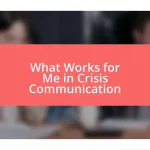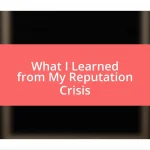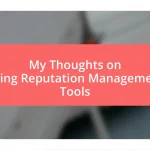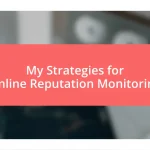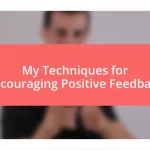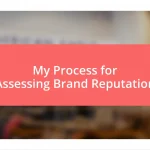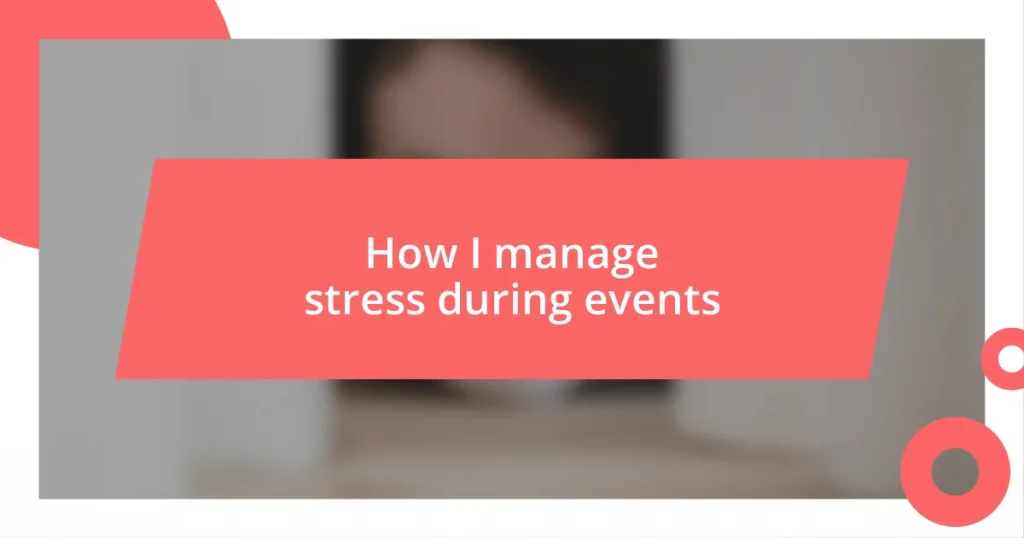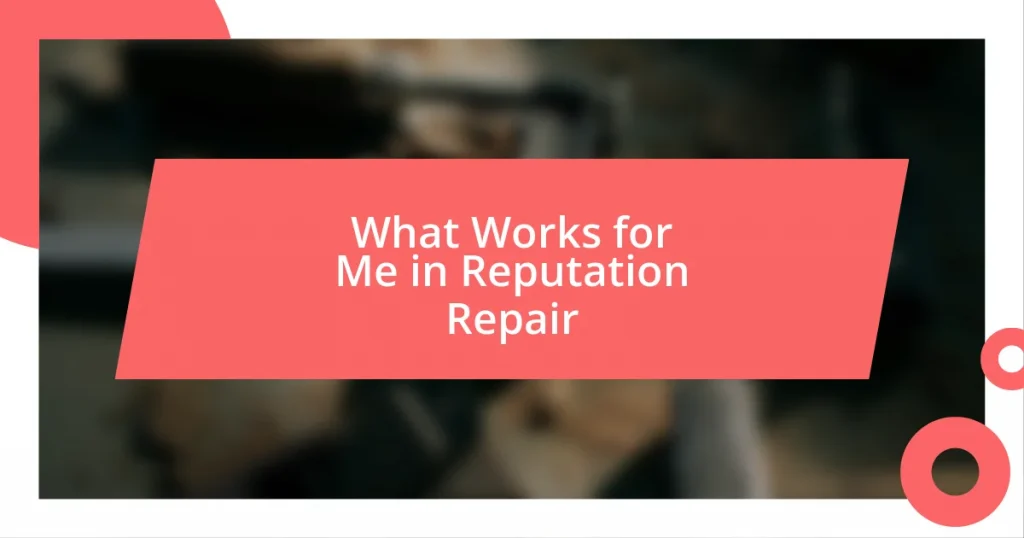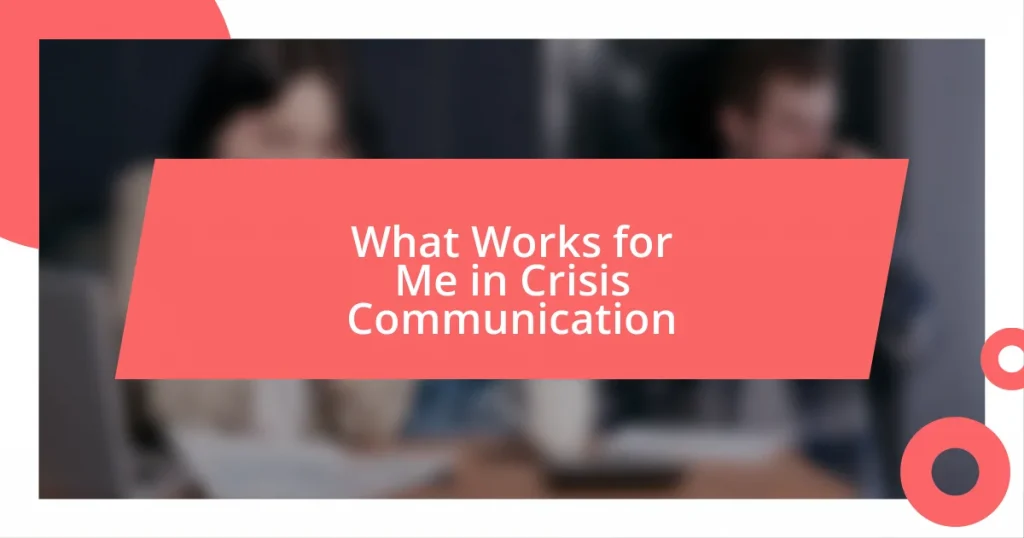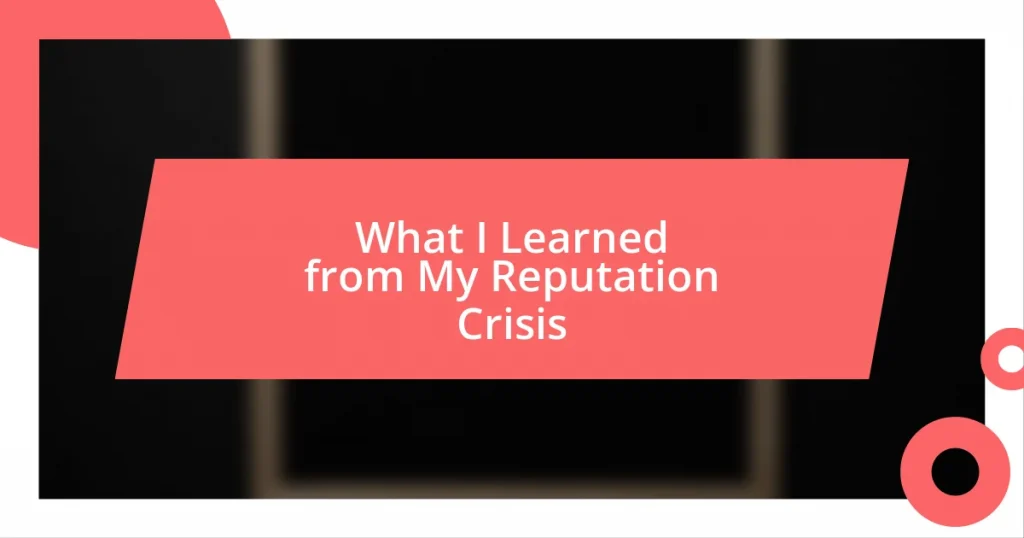Key takeaways:
- Identifying stress triggers, such as time pressure and fear of judgment, can enhance self-awareness and help in developing effective coping strategies.
- Planning techniques like creating checklists, visualization, and delegation can alleviate stress and foster a sense of control and collaboration.
- Post-event reflection and seeking professional support, whether through coaching or therapy, can provide valuable insights and contribute to personal growth in managing stress.
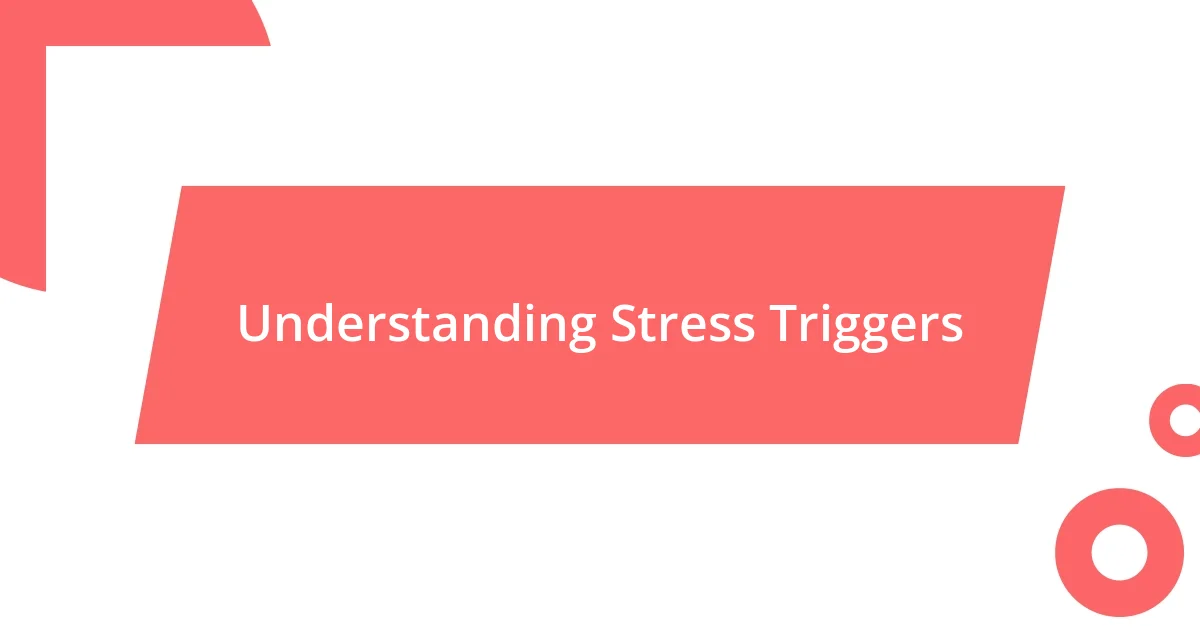
Understanding Stress Triggers
Understanding what triggers stress is crucial for managing it effectively. For me, one significant stress trigger is time pressure—especially as an event approaches. Have you ever felt that knot in your stomach as deadlines loom? I remember vividly the final hours before a big presentation, where small details felt insurmountable, often making me wonder if my usual preparedness would even suffice.
Another common trigger I’ve noticed in myself is the anticipation of judgment, especially in social situations. The fear of how others perceive me can create a palpable tension. I recall an instance at a networking event where I felt all eyes on me. It was in that moment I realized how much I was internalizing that pressure, rather than focusing on connecting with others. Isn’t it fascinating how our own minds can amplify those external expectations?
Understanding these triggers allows us to navigate our feelings better and seek proactive strategies. For instance, when I sense that familiar anxiety creeping in, taking a few moments to breathe and recenter has proven invaluable. Do you take the time to identify your triggers, and how do you respond when they arise? By acknowledging these patterns, we can begin to cultivate a more compassionate approach to our stress.
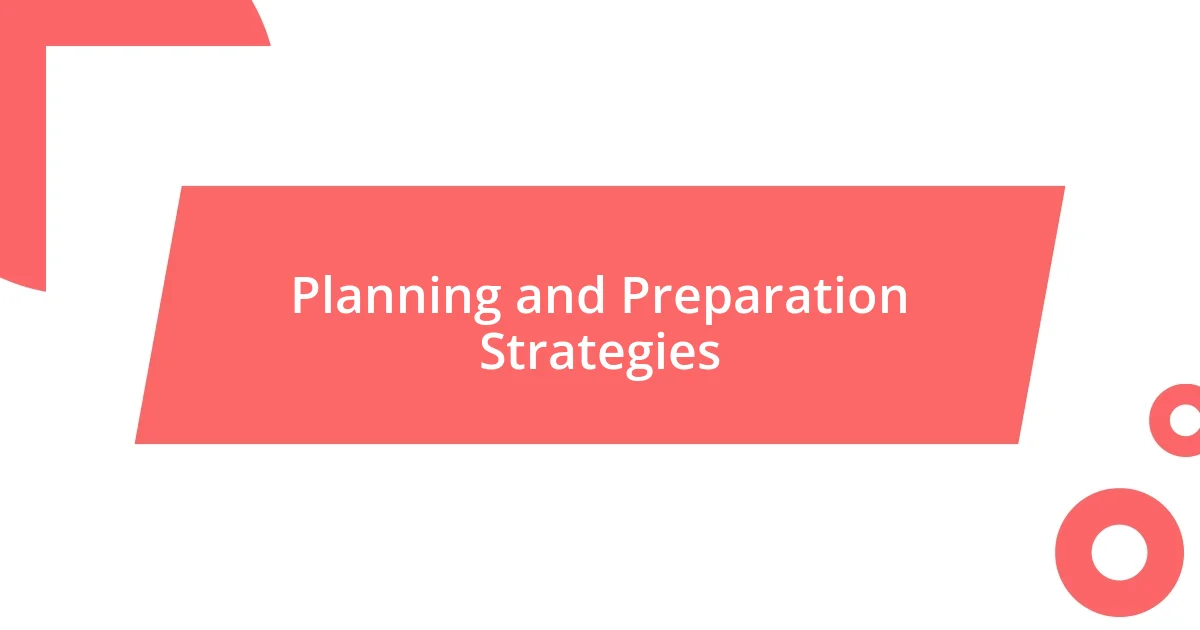
Planning and Preparation Strategies
In my experience, effective planning and preparation significantly alleviate stress. I often create checklists well ahead of time, which not only organize my tasks but also offer peace of mind. I recall preparing for a large family gathering where I listed everything from the menu to seating arrangements; seeing it all laid out helped me feel more in control and less anxious as the day approached.
Another strategy I embrace is visualization. Prior to an important event, I mentally walk through each step, imagining the process unfolding smoothly. It’s like running a mental movie, which boosts my confidence and eases tension. There’s nothing quite like the moment I visualize a successful outcome, as it grounds me and transforms my apprehension into excitement.
I also find it beneficial to involve others in the planning process. Delegating tasks not only lightens my load but fosters collaboration, turning anxiety into shared anticipation. Once, when co-hosting a seminar, I had my colleagues handle logistics. Their support let me focus on my presentation, and the enjoyment of working together overshadowed my stress.
| Strategy | Description |
|---|---|
| Checklists | Organizes tasks and offers peace of mind. |
| Visualization | Mental rehearsal to boost confidence and reduce tension. |
| Delegation | Involving others to share the load and enhance collaboration. |
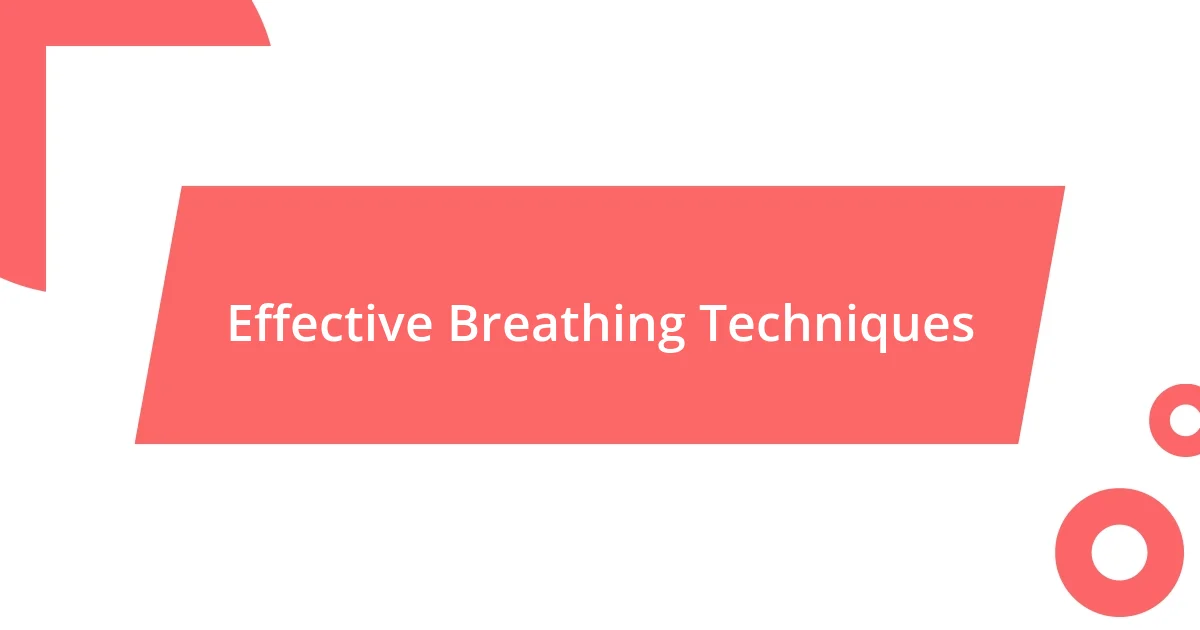
Effective Breathing Techniques
Effective breathing techniques can be a game changer when it comes to managing stress during events. I’ve often found myself in high-pressure situations, like before stepping on stage for a presentation, where I could feel the tension building. In those moments, I might take a brief pause to practice deep breathing. This simple act allows me to fill my lungs fully and exhale slowly, creating a calming effect that clears my mind for what’s ahead.
Here are a few techniques that have worked wonders for me:
- Diaphragmatic Breathing: Focus on breathing from your diaphragm rather than your chest. Place one hand on your belly and feel it rise and fall with each breath.
- 4-7-8 Technique: Inhale for 4 seconds, hold for 7, then exhale for 8. This method not only grounds me but also helps to reduce anxiety almost instantly.
- Box Breathing: Inhale for 4 seconds, hold for 4, exhale for 4, and hold again for 4. I often use this during moments when I need to refocus, as it provides structure to my breath.
Integrating these techniques into my routine has made a significant difference. I distinctly remember using the 4-7-8 technique right before delivering a keynote speech. The initial butterflies in my stomach transformed into confidence as I controlled my breath, reminding myself that I was prepared and capable. It’s incredible how something so simple can create a profound shift in mindset.
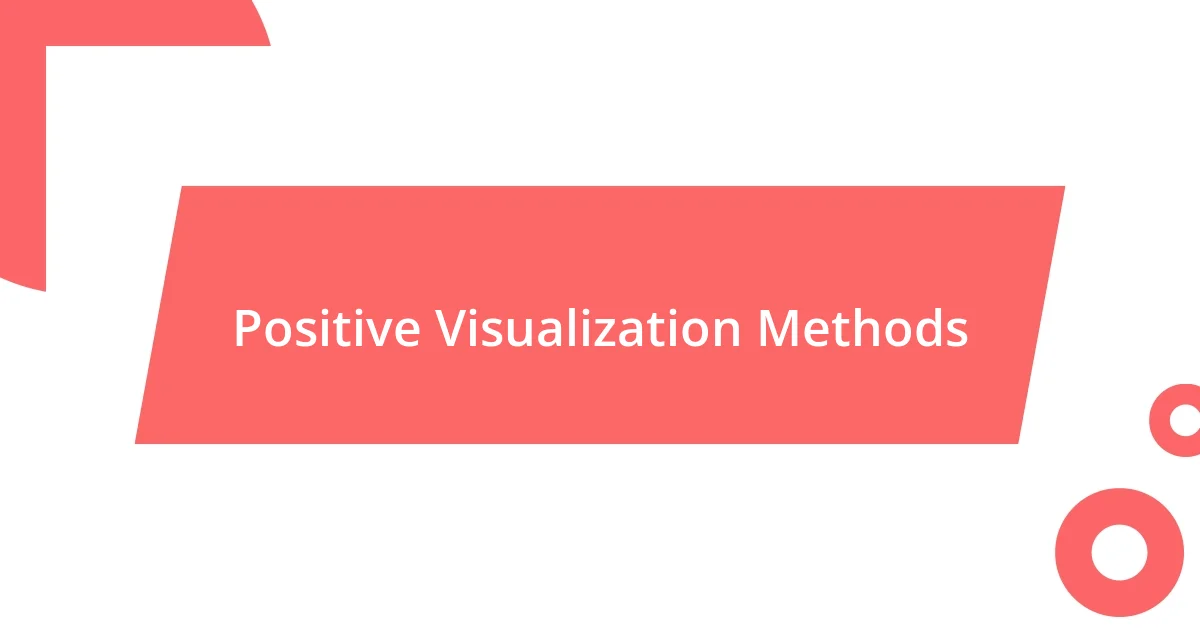
Positive Visualization Methods
Visualization is a powerful tool for managing stress, and I’ve discovered it can reshape my mindset dramatically. When I prepare for an event, I like to create vivid images in my mind—not just of success, but of the entire experience. I remember vividly visualizing my last presentation: I imagined the audience smiling, nodding, and engaging with my content. This not only calmed my nerves but also invigorated my enthusiasm for sharing what I had worked hard on.
I’m often asked how I maintain this level of focus during stressful moments. For me, it’s about embedding these visualizations into my routine. Before stepping into a high-pressure situation, I take a few moments in a quiet space. I close my eyes and play out the ideal scenario, focusing on the positive emotions associated with success. The anticipation feels palpable, as I remember the thrill of seeing my vision turn into reality during my last event, and that energy fuels my confidence.
Interestingly, I also visualize potential challenges or hiccups, crafting strategies to address them while keeping the overall positive outcome in mind. This approach has proven invaluable; when unexpected issues arise, I feel prepared rather than overwhelmed. It’s like training for a sport; I imagine myself on the field, tackling obstacles with clarity and resilience. The more I visualize, the more equipped I feel to turn anxiety into excitement, and I genuinely believe it enhances my overall performance. Isn’t it fascinating how our minds can influence our reality in such profound ways?
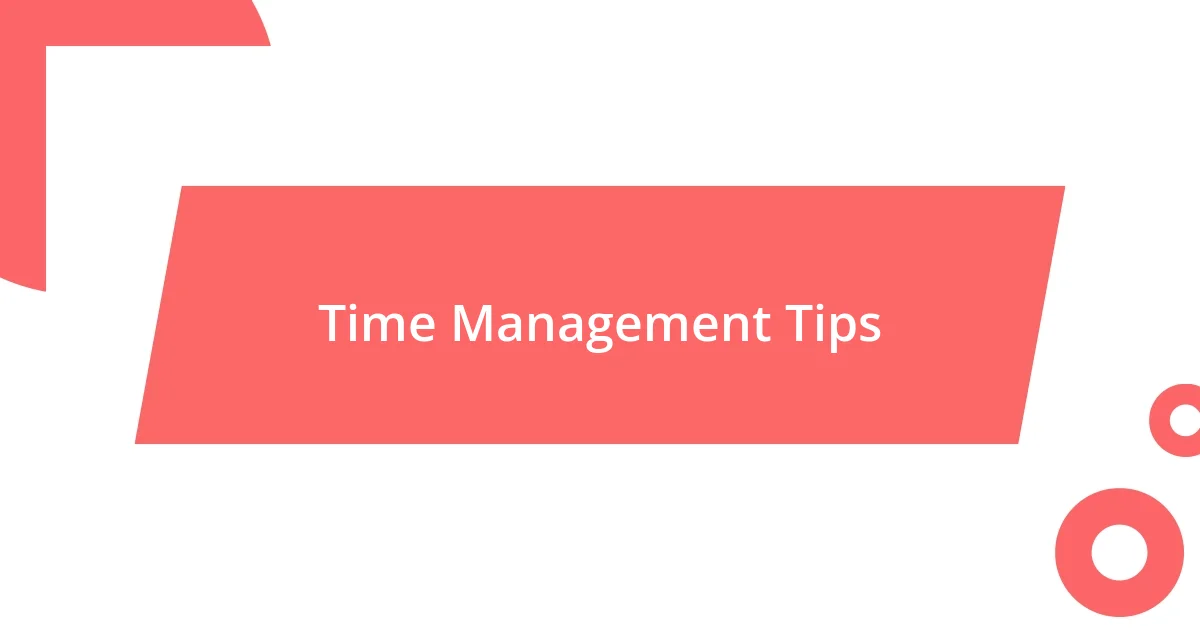
Time Management Tips
Time management has always been essential for me, especially when facing the whirlwind of events. One technique I swear by is creating a prioritized checklist. Before an event, I list down all the tasks that need attention, and then I rank them based on urgency and impact. There’s something incredibly satisfying about crossing items off a list; it not only gives me a clear path forward but also boosts my mood as I see my progress. Have you ever experienced that rush of accomplishment?
Another strategy that resonates with my experience is time-blocking. I find that dedicating specific chunks of time to different tasks can help avoid the overwhelming sense of chaos. For example, on the day of an event, I’ll set aside a solid hour just to rehearse my presentation. During that hour, all distractions are kept at bay—no phone calls, no emails—just pure focus. This structured approach lets me channel my energy efficiently, eliminating that nagging feeling of being spread too thin.
Lastly, I’ve learned to be realistic about my limitations. Initially, I’d pack my schedule too tightly, underestimating how long tasks would actually take. Now, I build in buffer time to accommodate unexpected delays. It’s a simple yet powerful shift in perspective; it allows space for creativity and reduces stress significantly. When events don’t go exactly as planned, I remind myself that flexibility is a strength, and it’s this mindset that often leads me to better solutions. Have you allowed yourself the grace to adapt in moments of pressure?
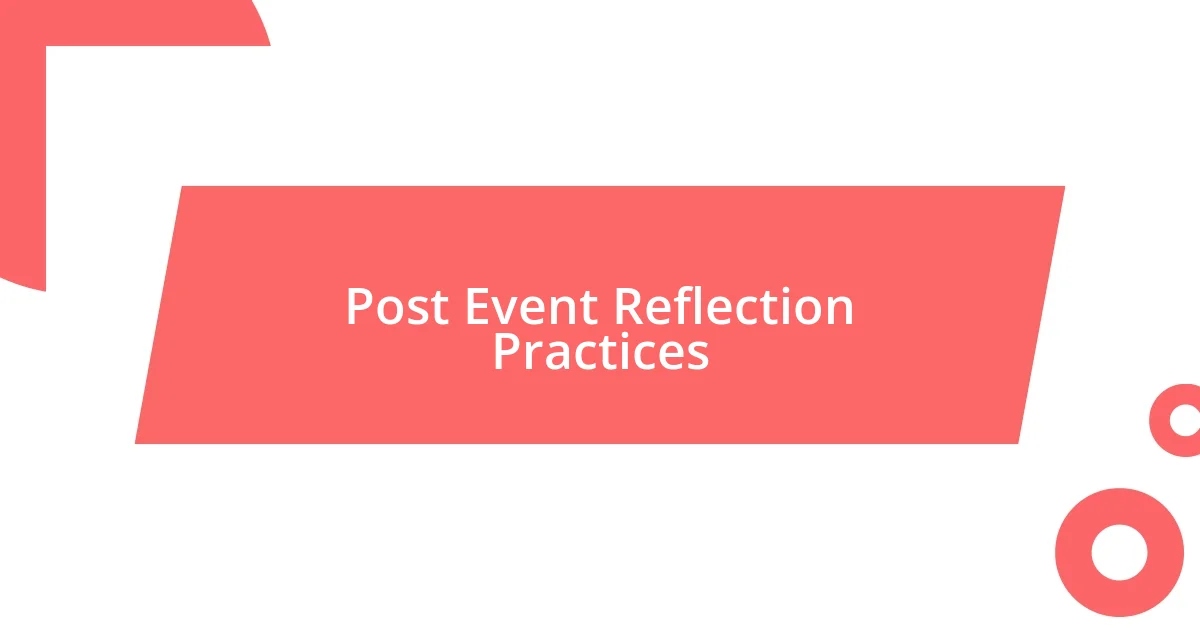
Post Event Reflection Practices
After an event, I find it immensely helpful to carve out time for reflection. This isn’t just about reviewing what went well or what didn’t; it’s more about understanding my emotional state throughout the process. I often sit down with a journal and ask myself, “What was I feeling during the event?” This introspection allows me to process my experiences, recognizing patterns in my thoughts and emotions that I might not notice in the hustle and bustle.
One practice I’ve implemented consistently is the ‘highlight and lowlight’ method. I go through my notes or memories and pick one standout moment that made me proud and one that felt challenging. By doing this, I feel a sense of closure and growth. For instance, after my last conference, I rejoiced in the inspiring conversation I had with a fellow speaker, but I also acknowledged my nerves before going on stage. Reflecting on both sides helps me appreciate my accomplishments and identify areas for improvement.
I also like to share my experiences with trusted friends or colleagues. Talking it through often brings fresh insights I hadn’t considered. I’ll ask, “What did you perceive during my presentation?” Their feedback can uncover nuances I might miss, and it reinforces a sense of community. Honestly, discussing these experiences makes a world of difference in how I carry forward the lessons learned. Have you tried sharing your reflections with someone you trust? You might discover just how rewarding it can be!
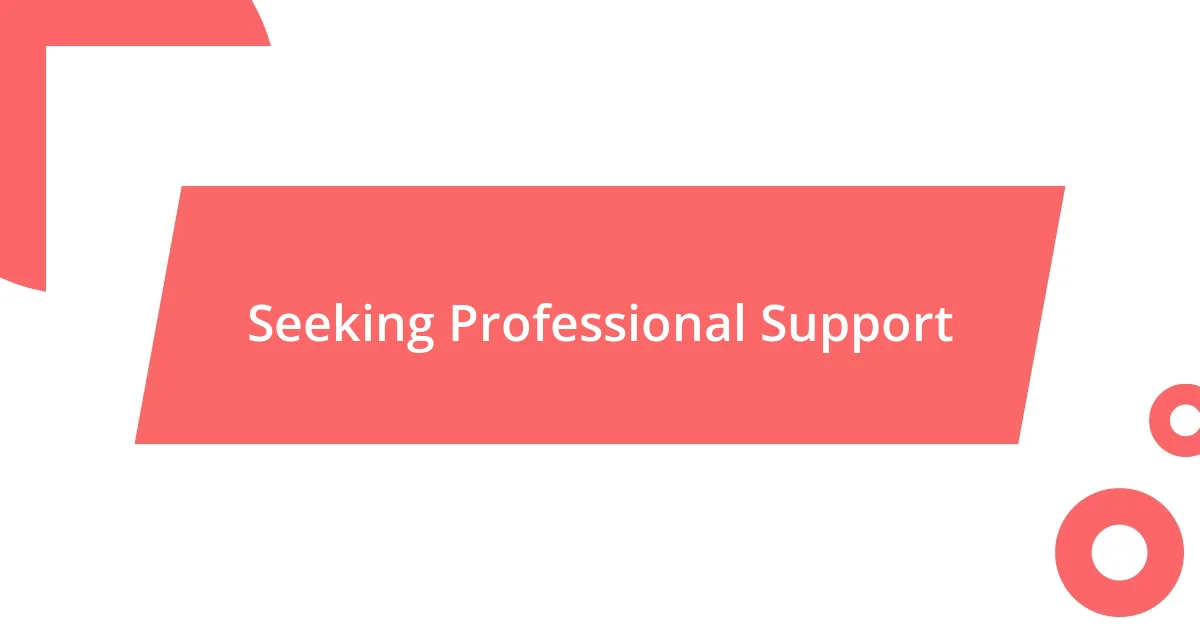
Seeking Professional Support
Seeking professional support can be a game changer when it comes to managing stress during events. I remember a particularly stressful moment before a big presentation; I felt like the weight of the world was on my shoulders. That’s when I decided to reach out to a coach who specialized in public speaking. Her guidance not only equipped me with techniques to manage my nerves but also empowered me to embrace my unique style. Have you ever thought about how a little expert advice could change your perspective?
Another experience that stands out for me is when I entered a group therapy session for event planners. Sharing my challenges with peers who understood my struggles was incredibly liberating. It’s fascinating to see how different minds tackle similar problems. I often think, “Why didn’t I seek this out sooner?” The experience reminded me that seeking support doesn’t signal weakness; instead, it fosters personal growth and builds a supportive network. Have you considered joining a group to share your own experiences?
Lastly, I’ve found online therapy platforms to be an accessible way to connect with professionals without the stress of travel. I recall a night filled with anxiety leading up to an event, and a simple session with my therapist offered clarity and actionable coping strategies. It made me realize that support is just a click away. The insights I gained helped me not only with that specific event but created a foundation for future challenges. When was the last time you took a moment to invest in your mental well-being with a professional? You deserve that support, too.

